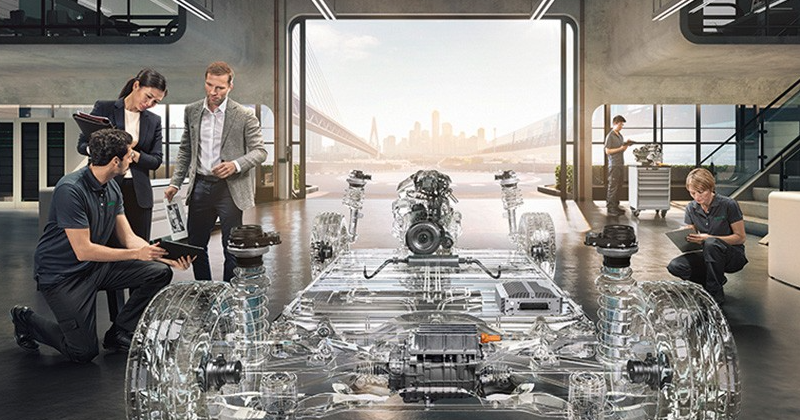Schaeffler surprises the industry with near production ready Solid State Battery
Schaeffler, a global automotive and industrial components supplier, has made a significant foray into the rapidly evolving solid-state battery industry. At the 2024 Consumer Electronics Show (CES), the company unveiled a prototype solid-state battery cell, demonstrating its ambition to become a frontrunner in this transformative technology.

Schaeffler’s entry into the solid-state battery landscape is a departure from its traditional focus on bearings, seals, and other mechanical components. However, the company’s deep expertise in manufacturing and materials science, coupled with its access to cutting-edge research and development capabilities, positions it well to make a substantial impact in this burgeoning sector.
Solid-state batteries offer several potential advantages over conventional lithium-ion batteries, including:
- Higher energy density: Solid-state batteries can store more energy per unit volume, enabling electric vehicles to travel longer distances on a single charge.
- Faster charging: Solid-state batteries can charge more quickly than lithium-ion batteries, reducing the time spent waiting for vehicles to refuel.
- Enhanced safety: Solid-state batteries are less prone to fire and explosion than lithium-ion batteries, making them a safer choice for electric vehicles.
Schaeffler is confident that its solid-state battery technology can overcome the challenges that have hindered the commercialization of this technology thus far, including:
- Materials shortages: The development of high-performance solid-state electrolytes and electrodes requires access to rare and expensive materials.
- Production costs: The manufacturing processes for solid-state batteries are more complex and expensive than those for lithium-ion batteries.
- Dendrite formation: Dendrites, metallic structures that can grow inside solid-state batteries and cause short circuits, are a major obstacle to achieving long battery life.
To address these challenges, Schaeffler is pursuing several strategic initiatives:
- Partnership with Honda and Ohio State University: The company has formed a partnership with Honda and Ohio State University to develop power pack technology and establish a research center for battery cell development.
- Investment in research and development: Schaeffler has committed significant resources to research and development, focusing on materials science and manufacturing processes for solid-state batteries.
- Exploration of alternative materials: The company is exploring the use of alternative materials, such as silicon and graphene, to overcome the limitations of traditional materials for solid-state batteries.
Schaeffler’s entry into the solid-state battery market has the potential to revolutionize the automotive industry and accelerate the transition to electric vehicles. With its expertise, resources, and strategic partnerships, Schaeffler is well-positioned to become a major player in this emerging technology and contribute to the development of cleaner, more sustainable transportation solutions.

